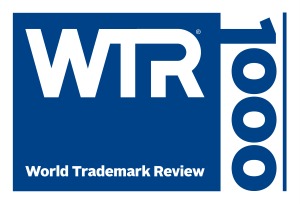Many businesses have been severely impacted by the coronavirus pandemic and are seeking rent relief from their landlords in order to maintain operations. If your business is preparing for, or already engaged in, rent relief discussions with your landlord, consider the three tips below.
Consider Your Landlord’s Position
The end goal of a rent relief discussion is a mutually acceptable solution. Understanding the issues your landlord is facing will help get you there.
- As with most other impacted businesses, your landlord is likely facing the threat of reduced income without a corresponding reduction in their financial obligations.
- Be considerate of the fact that you are probably not the only tenant asking for rent relief. Your landlord needs to consider how all rent relief requests will work on a collective basis, and therefore may respond with a solution that has different mechanics or timeframes than you requested.
- Depending on the size of the space you lease, as well as the type of relief you are seeking, your landlord may need their lender to consent to the requested relief, which may extend the timeframe for resolution. This is a frustrating, but unavoidable step for many landlords.
Make Your Case Easy for the Landlord to Digest
Your landlord will want to (a) understand exactly how the coronavirus pandemic is impacting your business and (b) confirm that you are pursuing all avenues for financial relief, both on the income side and the expense side.
- Explain why you need rent relief. Some landlords are requiring that tenants seeking rent relief fill out questionnaires. If your landlord requests this, fill it out even if you have already provided that information in another format.
- Provide financial information to the landlord in an organized and digestible way that demonstrates that you are facing an inability to meet your rent obligations, not just an unwillingness to pay. Be prepared to submit financial information that shows the adverse impact on your income/cash flow and how that relates to your financial obligations.
- Show the landlord that you are looking at other sources for relief. Some landlords may be willing to be a part of your solution, but are wary of being your sole or primary source of financial relief.
- Have you sought out relief provided by the CARES Act, including PPP loans? If so, what is the status?
- The lease likely requires you to have business interruption insurance. Have you made a claim?
- Do you have line of credit availability or other financing sources? Are you looking at other avenues to acquire funds to meet your financial obligations, including rent? Depending on the nature of your business, are there applicable grants that you could apply for?
- Have you pursued forbearance relief on any corporate debt?
- Have you requested relief from suppliers, service providers and the like?
- What other steps are you taking to decrease expenses/increase revenue?
Be Flexible and Cooperative
Tenants should bear in mind that landlords have no obligation to grant rent relief. Taking a flexible and cooperative approach to the discussions is important. While you may have different ideas about how to get there, both parties desire the same outcome: that your business weathers this storm and will be able to pay full rent for many years to come.
If you have any questions regarding rent relief or any real estate issues, please do not hesitate to contact Leah Schleicher or your Neal Gerber Eisenberg attorney.
—
The content above is based on information current at the time of its publication and may not reflect the most recent developments or guidance. Neal Gerber Eisenberg LLP provides this content for general informational purposes only. It does not constitute legal advice, and does not create an attorney-client relationship. You should seek advice from professional advisers with respect to your particular circumstances.












